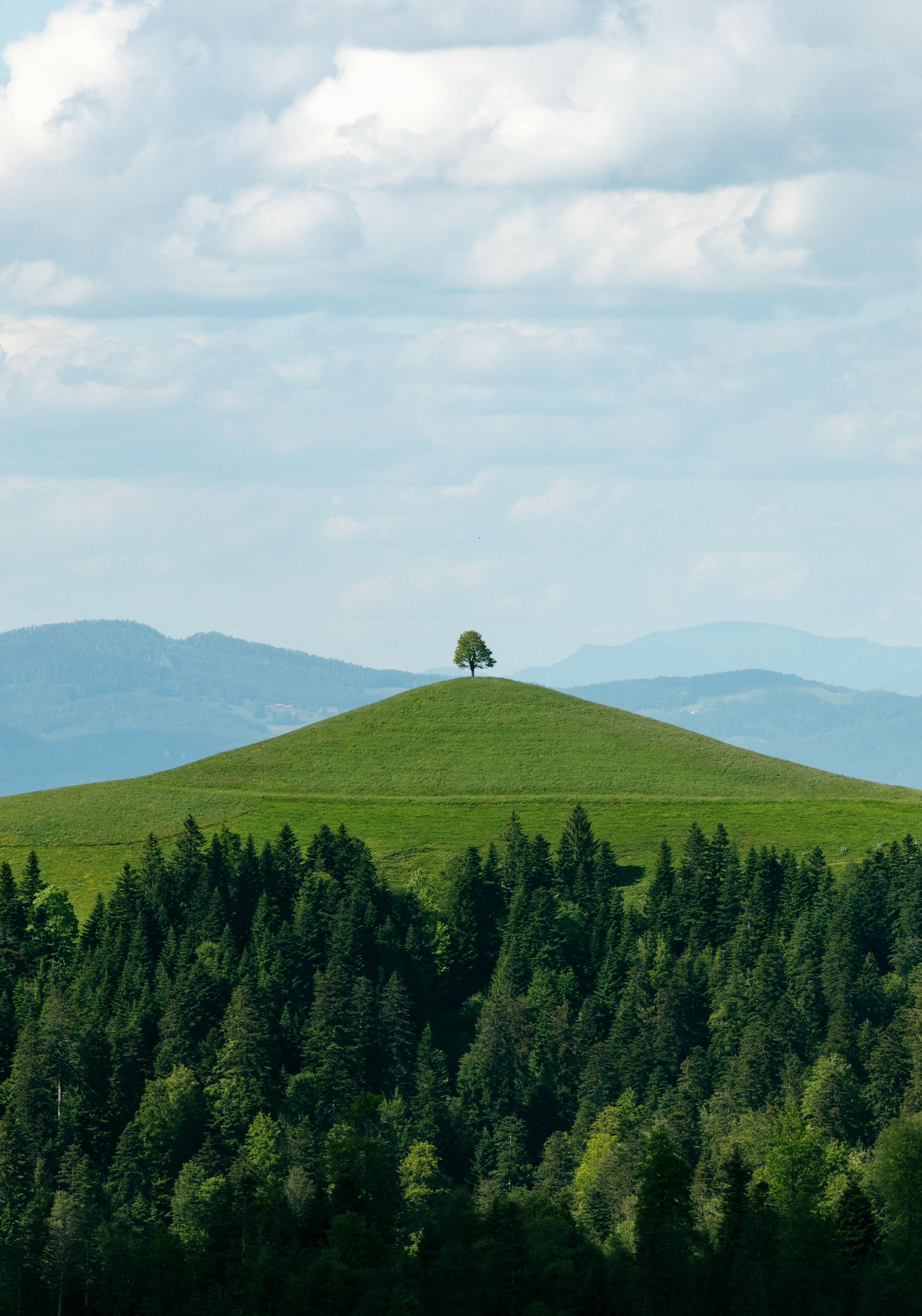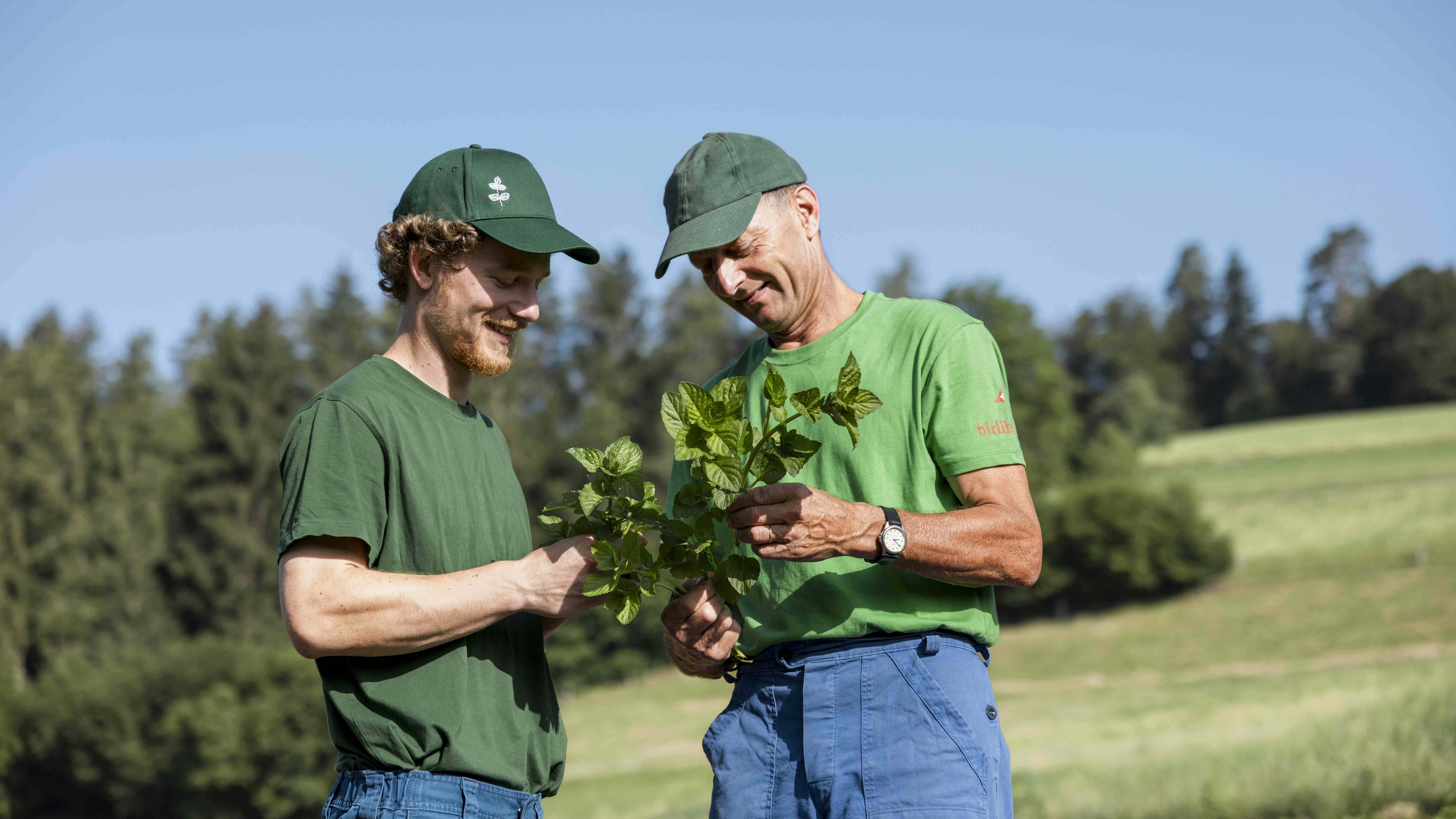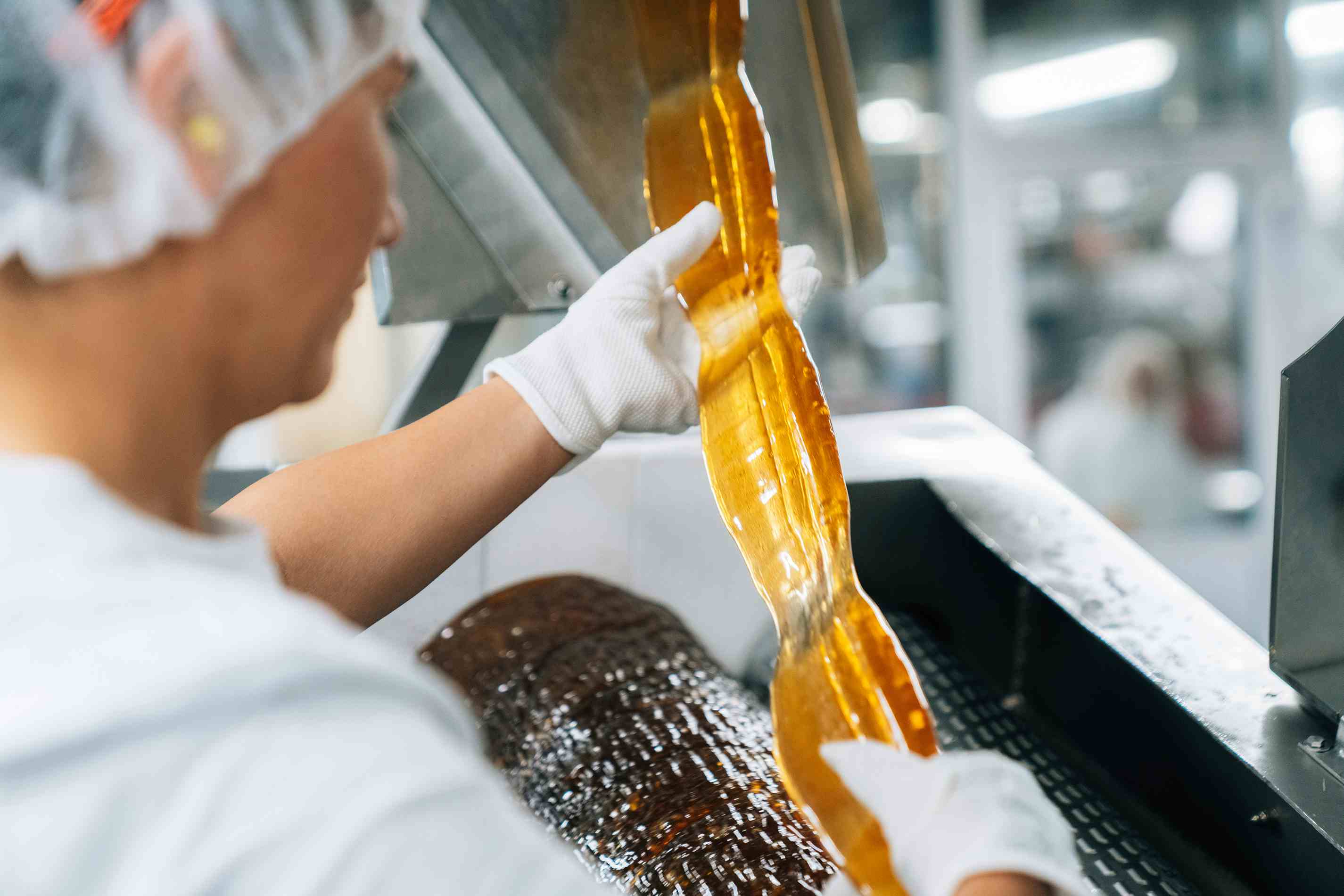Firmly rooted in nature
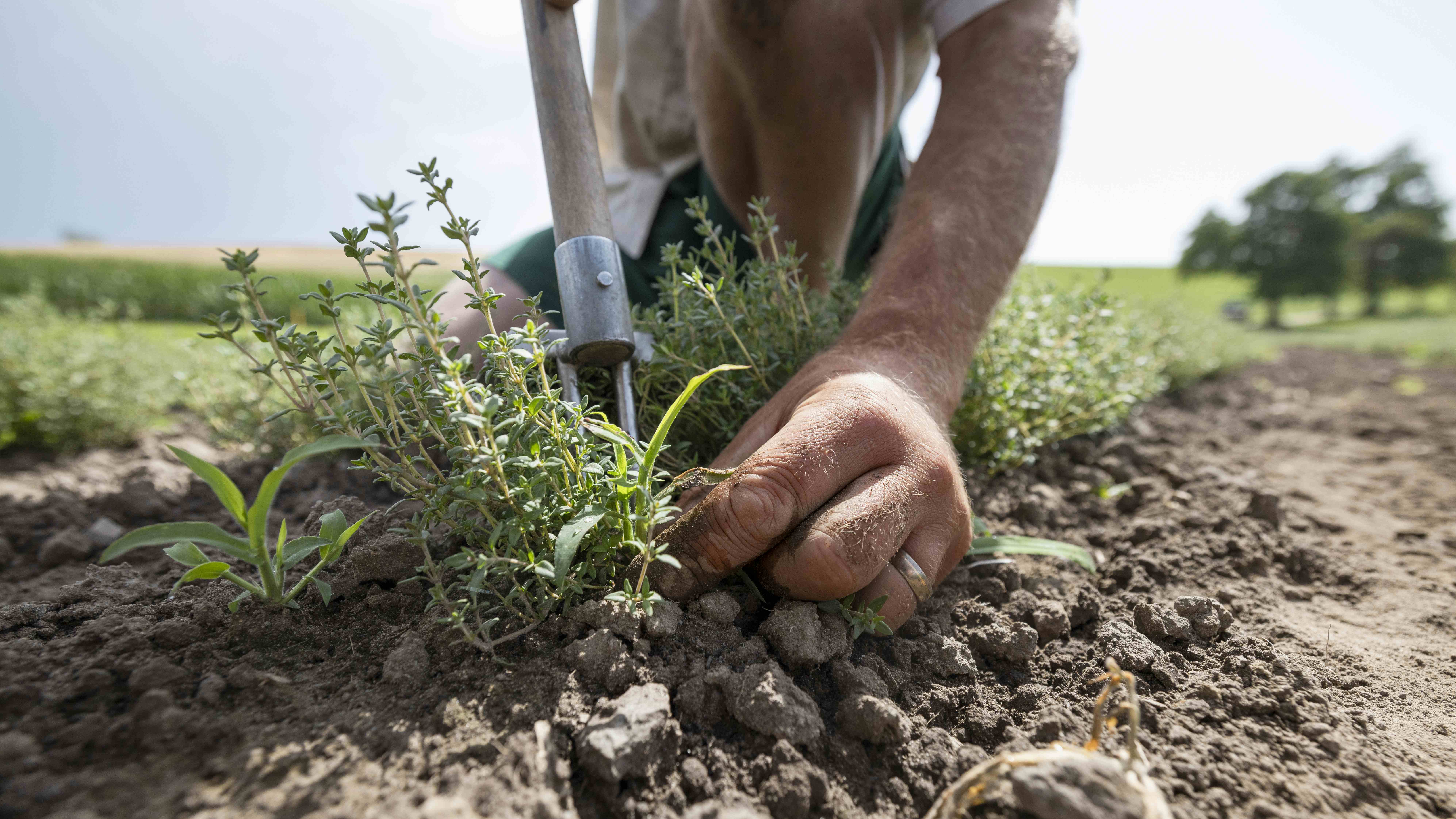
Our herbs give us the best they have. So we also give them the best, growing them naturally according to Bio Suisse standards.
Where nature is still natural
For us, farming is both a passion and a commitment. Our cultivation practices are designed to support the growth of each herb. This requires optimal soil quality and preferred climatic conditions. Therefore, we prefer regions known for fresh air and unspoiled nature.
Minimizing environmental impact
Working with Swiss herb farmers, we use natural methods such as crop rotation to minimize environmental impact. We keep external inputs to a minimum by selecting hardy plant varieties that are well adapted to local conditions. Of course, we stay away from synthetic chemical pesticides and artificial fertilizers. We also focus on resource efficiency by optimizing water and energy use.
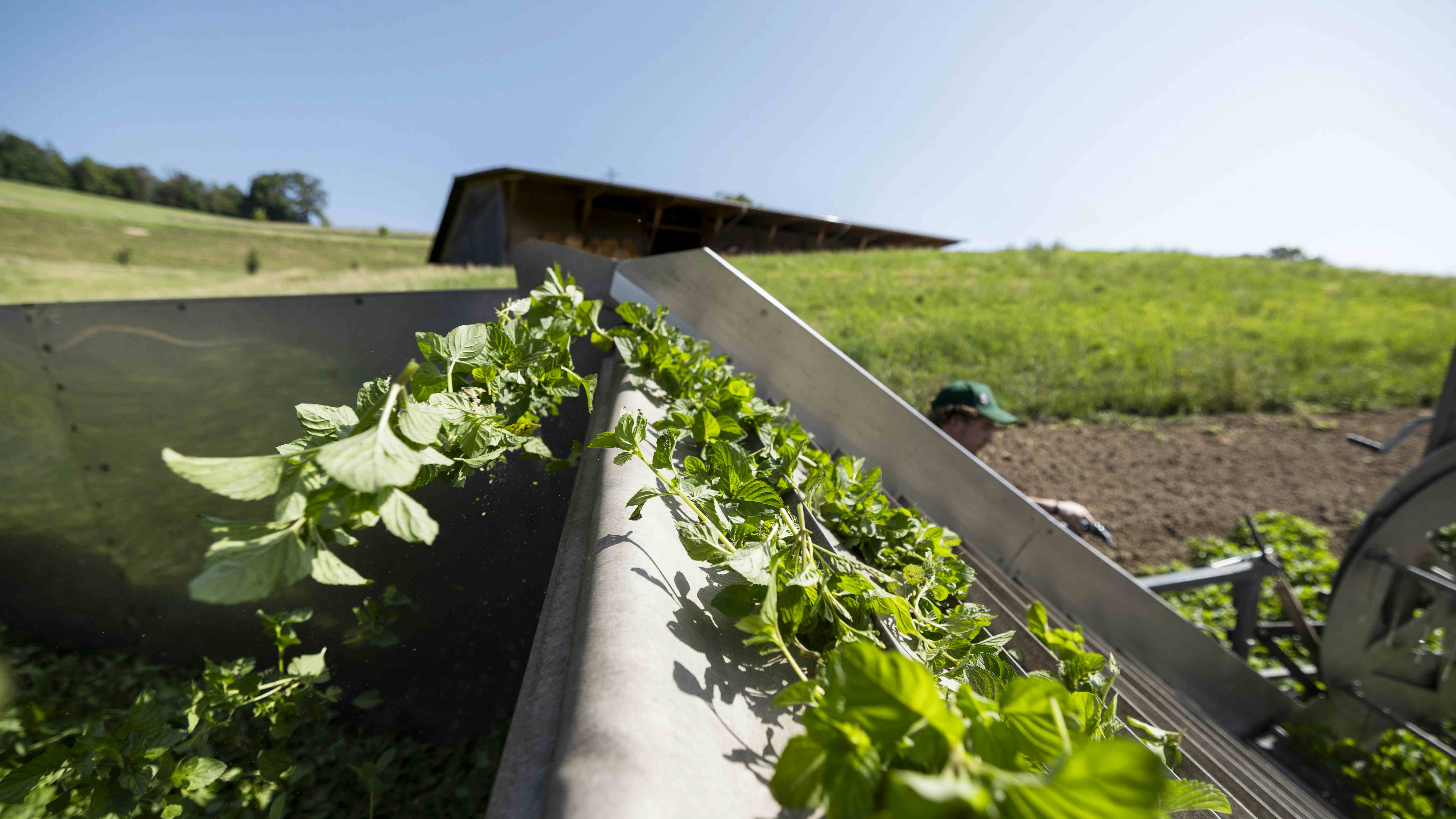
Where and How We Cultivate Our Herbs
Ensuring the highest quality
Ricola implements its sustainable cultivation practices at select sites across Switzerland, working with herb farmers and following strict criteria for soil quality and climate conditions. Our herbs are grown in Valais, Emmental, Puschlav, the southern Jura foothills, and Central Switzerland — regions known for their fresh air and unspoiled nature, ensuring the highest quality of the crops.
The specific climate and soil conditions in certain regions are ideal for specific herbs. Emmental and Jura areas, with their slightly acidic soils and fairly high rainfall, are perfect for growing peppermint. The dry climate of Valais and Val Poschiavo, featuring light, stony soils at altitudes exceeding 1,000 meters, is ideal for sage and thyme.
Promoting biodiversity
Ricola strictly applies natural farming methods that exclude synthetic chemical pesticides and artificial fertilizers. We use natural practices such as crop rotation, which not only improves soil health and fertility but also promotes biodiversity and reduces environmental impacts. Our farming approach is designed to be gentle and regenerative, actively supporting the natural environment of the fields and plants.
Our commitment to resource efficiency is demonstrated through meticulous management of water and energy use in cultivation, a key factor in reducing our ecological footprint. Additionally, we choose plant varieties that are well-suited to local conditions. This strategy reduces our dependence on external inputs and promotes sustainable cultivation so that our herbs are robust, aromatic, and flavorful.
Respecting the plant cultivation cycle
Ricola's dedication to herb cultivation includes careful timing. Our farmers start sowing seeds in mid-April. At higher elevations, they delay planting to protect the young plants from the cold. During growth, the focus is on delicate care to enhance plant health and protect the soil. When not working by hand, we use only energy-efficient and environmentally friendly machines that preserve both soil and insect habitats.
Harvesting takes place when the herbs have reached their peak in valuable active ingredients, essential for product quality. The freshly harvested herbs are then often dried at farmers’ drying facilities and transported to our Herb Center in Laufen. We maintain strict quality control and only process herbs into Ricola products if they meet our high standards for freshness, color, aroma, purity, and active ingredient content.
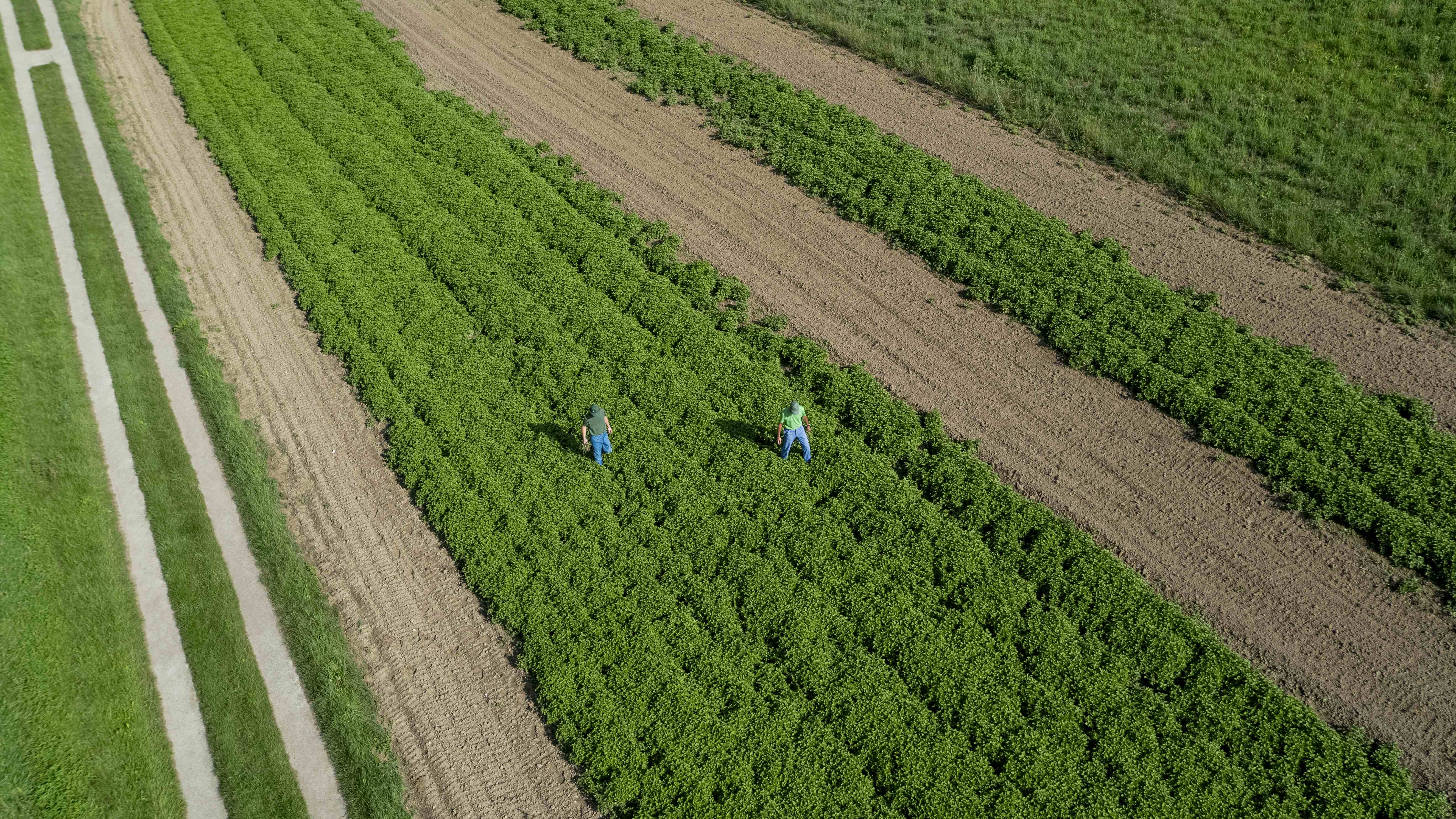
We choose growing areas located away from industrial activities and traffic, ensuring our herbs are not close to pollutants.
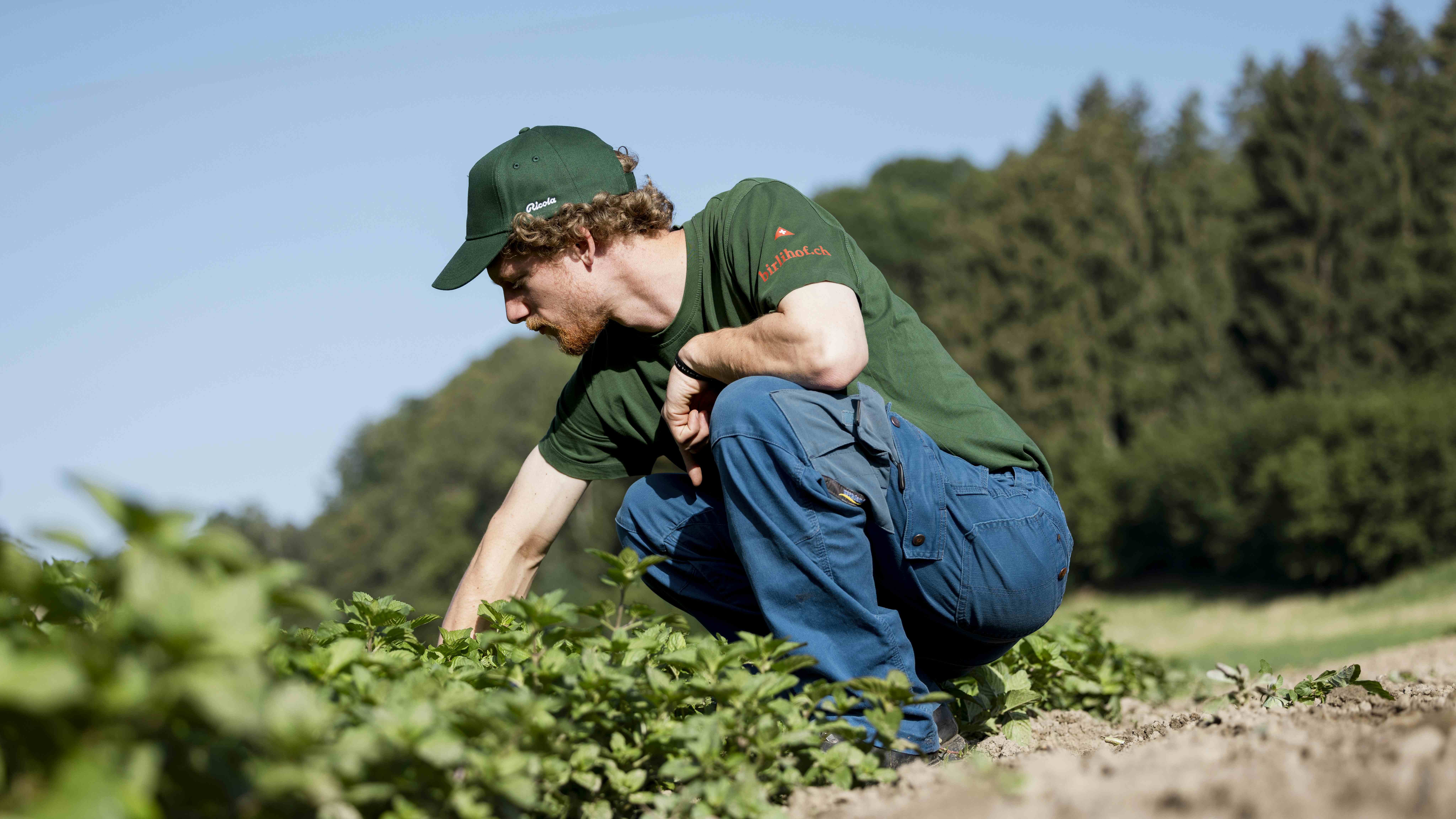
Our herb farmers work with great patience and dedication, checking each leaf by hand for pests rather than resorting to chemicals.
